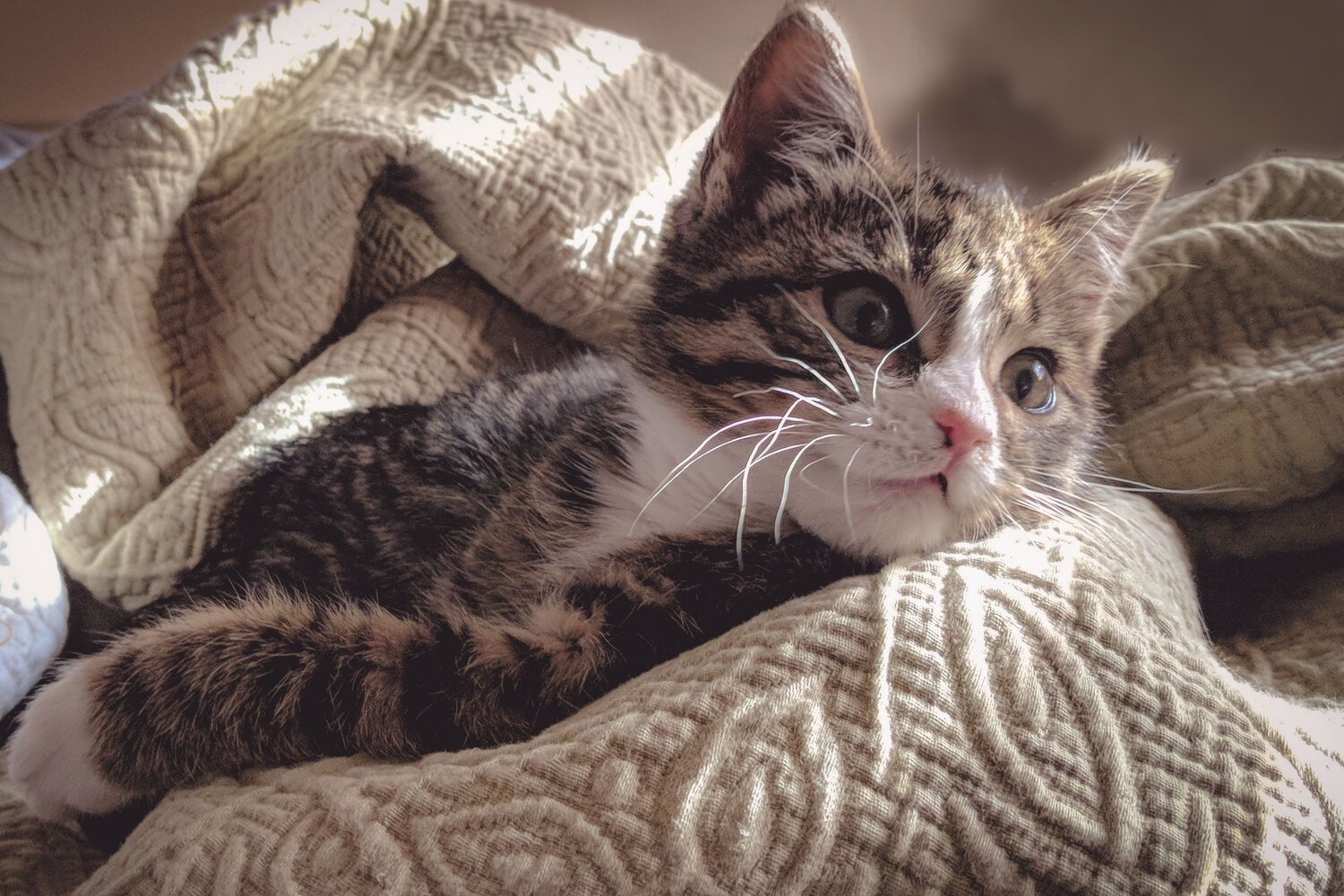
KITTEN CARE
Kitten Care—Nurturing a Healthy Start

For a more comprehensive information package, download our New Kitten Guide and check out our PAW-sitive Start Program!!
What is the most important thing to know about raising a healthy kitten?
Ideally, acquiring your kitten around seven or eight weeks is best to ensure a smooth transition from their litter and mother. The main focus when raising a kitten should be on their behavior, as well as parasite control, and preventive vaccinations. We will also engage in discussions on how to provide an enriched and healthy indoor environment for your kitty.
What are the right and wrong ways to pick up my kitten?
Support your kitten's hindquarters with one hand and place your other hand under their chest. Lift gently, allowing them to feel secure and in control. Avoid grabbing your kitten by the scruff, as this can be uncomfortable and may cause fear or anxiety. Always prioritize gentle and supportive handling techniques!
How should I feed my kitten?
For the majority of kittens, we suggest providing a combination of free-fed dry food along with canned food to enrich their dietary experience. It's crucial to remember that cats are carnivores, and canned food aligns more closely with their natural diet compared to dry food, which is more of a convenient option. You can feed your cats a mix of both for convenience, ensuring they receive canned food twice a day because of its nutritional importance.
When should my kitten be vaccinated?
The immunity that a kitten has at birth begins to diminish sometime between 6 and 12 weeks of age. The first set is usually given by the breeder between 6 and 8 weeks. The general rule of thumb is a set of vaccines is required every 4 weeks until the kitten is 16 weeks of age or older. Thereafter, your cat will require vaccines at a regular interval, typically once yearly. Some of the vaccines we give only need a booster every 3 years once the cat has reached full maturity. You will need to follow our kitten vaccine schedule quite closely; if you wait too long between vaccine boosters, you may have to start all over again.
Which vaccines should my kitten receive?
We believe that cats should be protected against those diseases which are most common, highly contagious and can cause serious illness or death. We recommend vaccination against Feline Calicivirus, Feline Panleukopenia, Feline Herpesvirus and Rabies. Other vaccines may be recommended based on risk factors such as heredity, environment and lifestyle.
FAQ
-
Regular veterinary visits are essential during the first year of your kitten's life. Typically, kittens require vaccinations and check-ups every four weeks until they are around four months old. We recommend that you bring your kitten in right away to set them up with a preventative plan.
-
Your kitten's first visit will involve a comprehensive examination, vaccinations, and discussions about preventive care.It's an excellent opportunity to address any questions or concerns you may have.
-
Feel free to ask about vaccination schedules, nutrition, litter box training, and any behavioral concerns. Your veterinarian will guide you on the essential aspects of kitten care
-
A happy and healthy kitten exhibits playful behavior, has a good appetite, maintains a shiny coat, and engages positively with you and their environment. Regular veterinary check-ups will help ensure their ongoing well-being.
